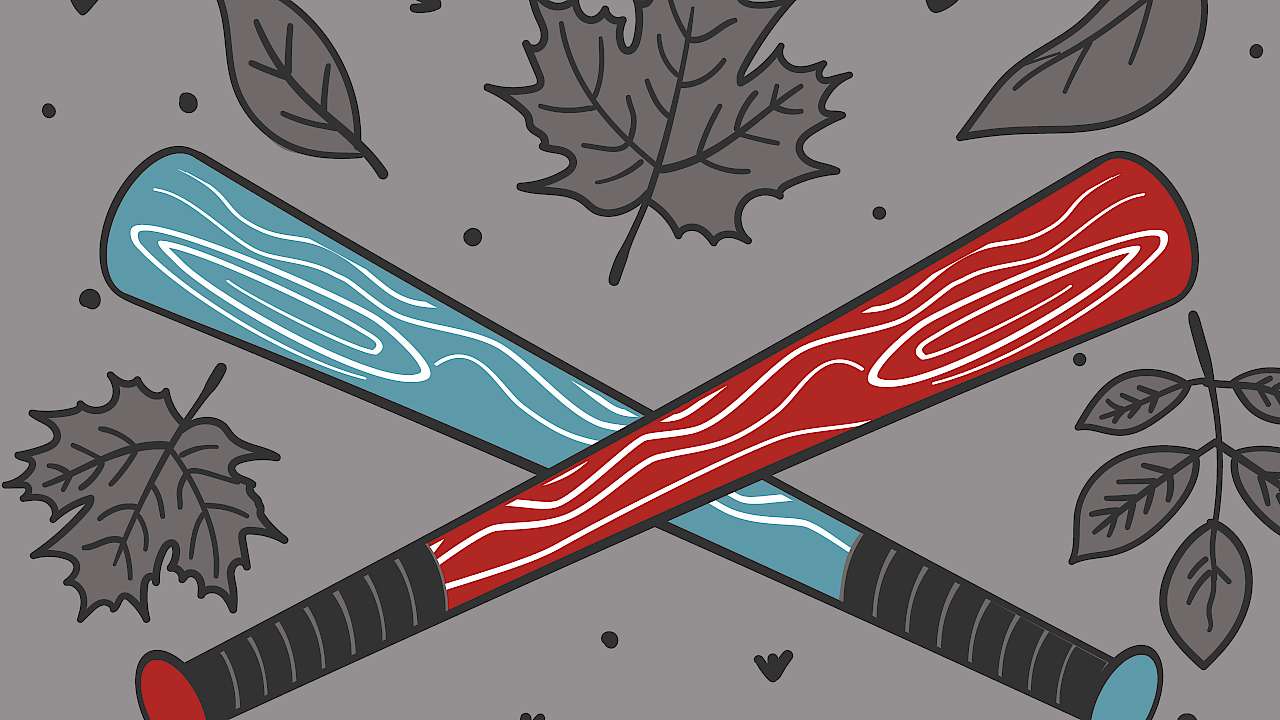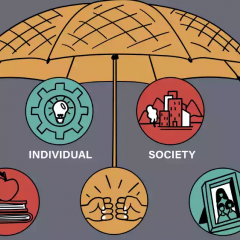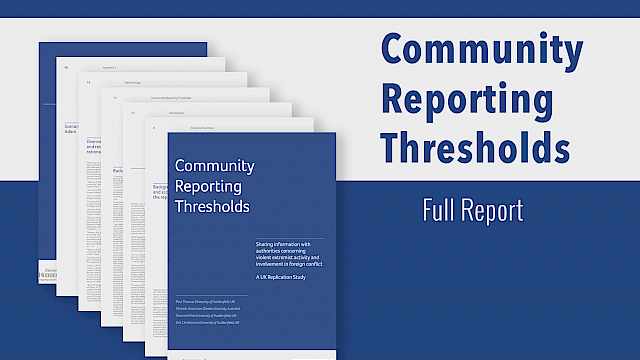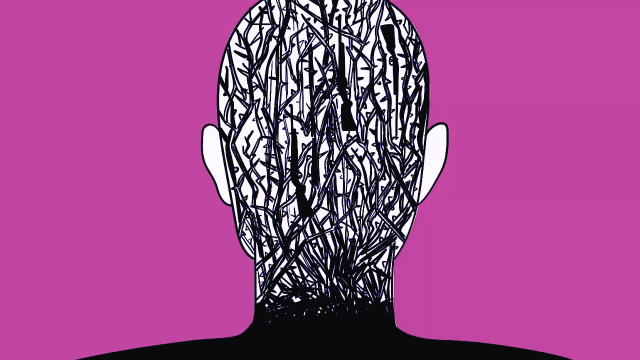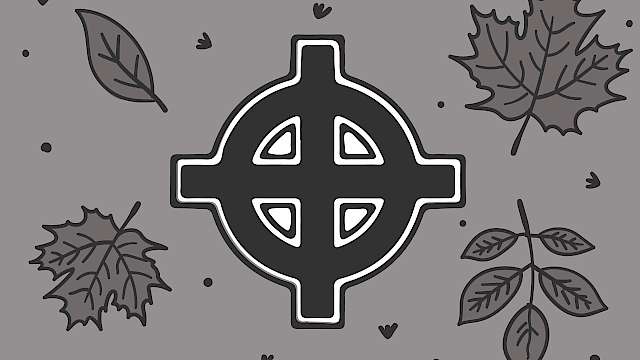Executive Summary
This report describes the findings of research based on a qualitative analysis of the life histories of four German, former right-wing extremists. It uses the Good Lives Model (GLM) as a framework for interpreting their journeys into and out of extremism and considers the implications for policy and practice.
The findings suggest that developing rehabilitation strategies for right-wing extremists which draw on strengths-based approaches, such as the GLM, has promise as it helps to understand which primary needs are fulfilled by right-wing extremist ideology and contexts, and therefore can provide insight into where to target rehabilitation strategies at an individual level. However, individual-level analysis only is insufficient. It is also important to consider the social and historical context an individual is embedded in, and the opportunities and barriers that context provides to fulfil goods in normative or counter-normative ways.
In certain socio-historical periods, national and local contexts, and/ or organisational settings, there can be explicit or tacit support for right-wing ideology. The life stories analysed for this report were rooted in experiences in Germany in the 1990s.
During this period, the so-called ‘Baseball Bat Years’ because of the scale of neo-Nazi violence, right-wing extremism was often trivialised and attracted relatively modest sanctions. In this context, engaging in right-wing activities could be understood as being in line with wider norms, reinforcing extremist aspirations by providing easy access to somewhat socially acceptable, if harmful routes to achieving goods and fulfilling individual needs.
The analysis demonstrates how the GLM helps interpret how individuals can meet needs and fulfil goods in maladaptive and anti-social ways. The findings also illustrate the importance of considering the normative contexts people are embedded in when developing intervention or reintegration strategies. If individuals are situated in, or returned to, right-wing supportive contexts, the opportunities for them to pursue non-harmful routes to achieving goods are reduced.
These issues also highlight the importance of recognising the dynamic nature of norms, and the way shifting societal and political perspectives on what is ‘extreme’, or acceptable forms of political expression, shape the contexts within which assessments of risk; analyses of trajectories through extremism; and intervention planning are developed.
This CREST report is informed by a review of research on protective factors set out in an earlier report. You can find all the outputs from this project here.
The research for the report was supported by the Center for Research on Extremism (C-REX). C-REX is a cross-disciplinary centre for the study of right-wing extremism, hate crime and political violence at the University of Oslo, and the Handa Centre for the Study of Terrorism and Political Violence at the University of St Andrews.
Read more
Life history accounts used in the analysis
Bauer, Manuel. 2012. Unter Staatsfeinden. Mein Leben im braunen Sumpf der Neonaziszene. München: Riva Verlag.
Bar, Stefan Michael. 2003. Fluchtpunkt Neonazi. Eine Jugend zwischen Rebellion, Hakenkreuz und Knast, edited by Klaus Farin and Rainer Fromm for the Archiv der Jugendkulturen e.V. Berlin: Verlag Thomas Tilsner.
Weißgerber, Christian E. 2019. Mein Vaterland! Warum ich ein Neonazi War. Zürich: Orell Füssli Verlag.
Winterberg, Yuri and Jan Peter. 2004. Der Rebell: Otfried Hepp, Neonazi, Terrorist, Aussteiger. Köln: Lübbe-Verlag.
Bibliography
Ayyadi, Kira. 2021. ‘Ballstädt: Immer wieder milde Urteile für Neonazi-Täter’. Belltower.News. 18 May 2021. https://www.belltower.news/ballstaedt-prozess-immer-wieder-milde-urteile-fuer-neonazi-taeterinnen-115885/.
Backes, Uwe. 2013. ‘Extremismus und politisch motivierte Gewalt im vereinten Deutschland’. In Handbuch politische Gewalt. Formen, Ursachen, Legitimation, Begrenzung, edited by Brigit Enzmann, 363–95. Wiesbaden: Springer.
Blumenau, Bernhard. 2020. ‘Unholy Alliance: The Connection between the East German Stasi and the Right-Wing Terrorist Odfried Hepp’. Studies in Conflict & Terrorism 43 (1): 47–68. https://doi.org/10.1080/1057610X.2018.1471969.
Dean, Christopher. 2014. ‘The Healthy Identity Intervention: The UK’s Development of a Psychologically Informed Intervention to Address Extremist Offending.’ In Prisons, Terrorism & Extremism, Critical Issues in Management, Radicalisation and Reform, edited by Andrew Silke, 89-107. London: Routledge.
Mallion, Jaimee S., Jane L. Wood, and Andrea Mallion. 2020. ‘Systematic Review of ‘Good Lives’ Assumptions and Interventions’. Aggression and Violent Behavior 55: 101510. https://doi.org/10.1016/j.avb.2020.101510.
Marsden, Sarah V. 2017. ‘Reintegrating Radicals: A Strengths-based Approach to Deradicalisation’. In Victims and Perpetrators Exploring Identities, Roles, and Narratives, edited by Olga Lynch and Javier Argomaniz, 149-164. London: Routledge.
Paalgard Munden, Hanna, Sarah Marsden, Md Kamruzzaman Bhuiyan, Lotta Rahlf, Hanna Rigault Arkhis, Aimee Taylor, Good Lives in Right-Wing Extremist Autobiographies, Centre for Research and Evidence on Security Threats (CREST), 10.10.2023, https://crestresearch.ac.uk/resources/good-lives-in-right-wing-extremist-autobiographies/.
Purvis, Mayumi. 2010. Seeking a Good Life: Human Goods and Sexual Offending. Lambert Academic Publishing.
Purvis, Mayumi, Tony Ward, and Gwenda Willis. 2011. ‘The Good Lives Model in Practice: Offence Pathways and Case Management’. European Journal of Probation 3 (2): 4–28. https://doi.org/10.1177/206622031100300202.
Salzborn, Samuel. 2016. ‘Die Stasi und der Westdeutsche Rechtsterrorismus. Drei Fallstudien’. Bundeszentrale für politische Bildung. 15 April 2016. https://www.bpb.de/themen/deutschlandarchiv/224836/die-stasi-und-der-westdeutsche-rechtsterrorismus-drei-fallstudien/.
Steuwer, Janosch, and Till Kössler. 2022. ‘Deutscher Herbst 1991. Rechte Gewalt und nationale Selbstbetrachtung’. Aus Politik und Zeitgeschichte 49 (50): 15–20.
Virchow, Fabian. 2022. ‘Rechte Gewalt in Deutschland nach 1945. Eine Einordnung der 1990er Jahre’. Aus Politik und Zeitgeschichte 49 (50): 10–14.
Ward, Tony. 2002. ‘Good Lives and the Rehabilitation of Offenders: Promises and Problems’. Aggression and Violent Behavior 7 (5): 513–28. https://doi.org/10.1016/S1359-1789(01)00076-3.
Ward, Tony. 2002. ‘The Management of Risk and the Design of Good Lives’. Australian Psychologist 37 (3): 172–79. https://doi.org/10.1080/00050060210001706846.
Ward, Tony, and Mark Brown. 2004. ‘The Good Lives Model and Conceptual Issues in Offender Rehabilitation’. Psychology, Crime & Law 10 (3): 243–57. https://doi.org/10.1080/10683160410001662744.
Ward Tony, and Dawn Fisher. 2005. ‘New Ideas in the Treatment of Sexual Offenders’. In Sexual Offender Treatment: Controversial Issues, edited by William L. Marshall, Yolanda Fernandez, Liam Marshall, and Geris Serran, 143-158. New Jersey: John Wiley & Sons Ltd.
Ward, Tony, and William L. Marshall. 2004. ‘Good Lives, Aetiology and the Rehabilitation of Sex Offenders: A Bridging Theory’. Journal of Sexual Aggression 10 (2): 153–69. https://doi.org/10.1080/13552600412331290102.
Ward, Tony, and Claire Stewart. 2003. ‘The Treatment of Sex Offenders: Risk Management and Good Lives’. Professional Psychology: Research and Practice 34 (4): 353–360. https://doi.org/10.1037/0735-7028.34.4.353.
Copyright Information
As part of CREST’s commitment to open access research, this text is available under a Creative Commons BY-NC-SA 4.0 licence. Please refer to our Copyright page for full details.
IMAGE CREDITS: Copyright ©2024 R. Stevens / CREST (CC BY-SA 4.0)
